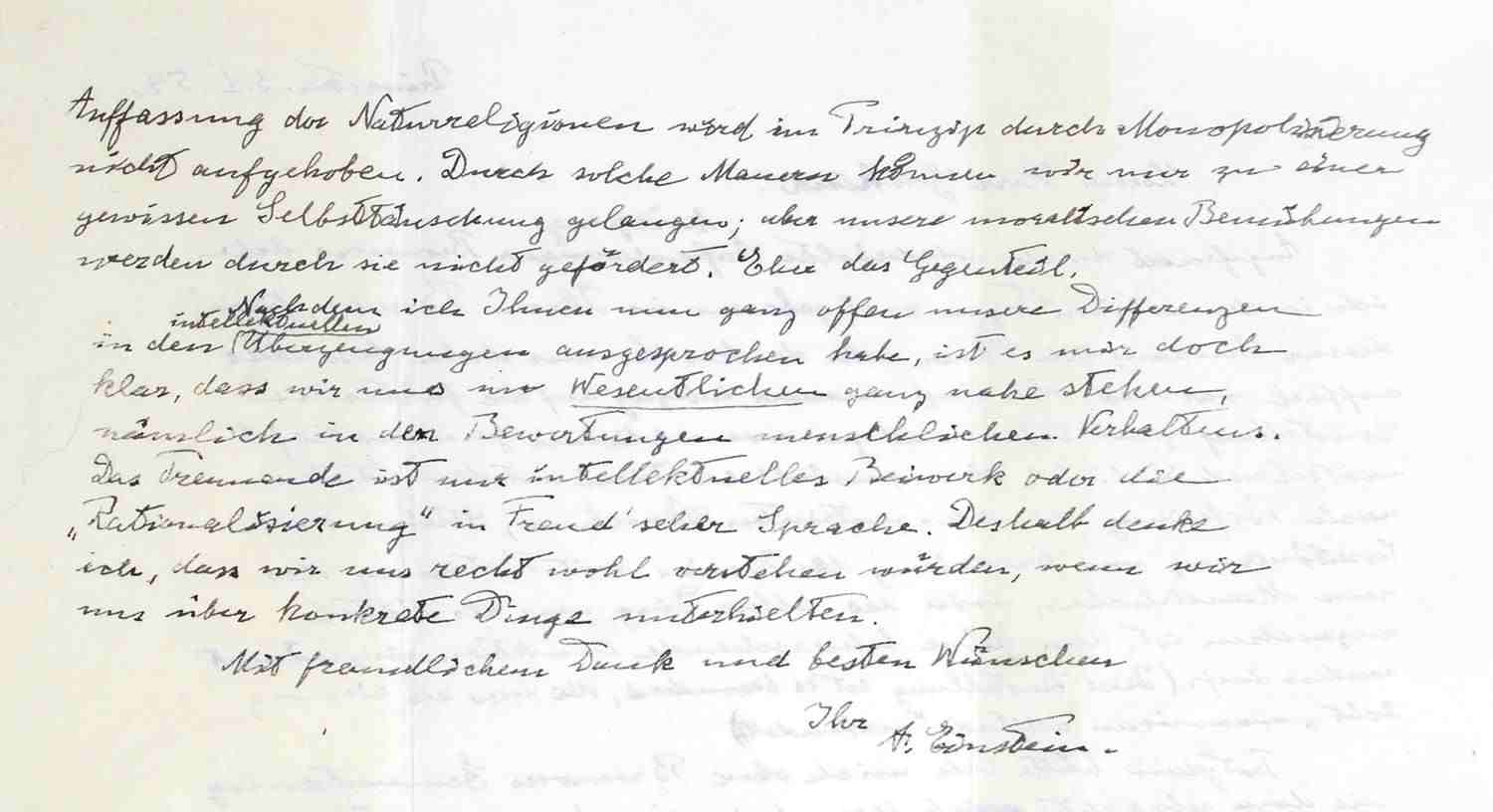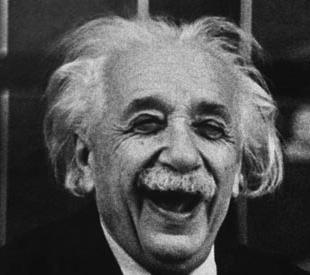Albert Einstein and Religion This is an unrecorded letter, found in a private collection, from Albert Einstein, in which the theoretical physicist wrote of his religious beliefs.
 This is the back side and closing of the letter. Einstein penned the letter on January 3 1954 to the philosopher Eric Gutkind, upon receipt of Gutkind's book "Choose Life: The Biblical Call to Revolt." In this extraordinary letter Einstein writes, "The word god is for me nothing more than the expression and product of human weaknesses, the Bible a collection of honourable, but still primitive legends which are nevertheless pretty childish" Einstein was Jewish but went to a Catholic primary school, receiving private tuition in Judaism at home. He declined the offer from the newly formed state of Israel to be its second president. In this letter, which was written in German the year before his death, Einstein wrote, "For me the Jewish religion like all others is the incarnation of the most childish superstitions. And the Jewish people to whom I gladly belong and with whose mentality I have a deep affinity, have no different quality for me than all other people. As far as my experience goes, they are no better than other human groups, although they are protected from the worst cancers by lack of power. Otherwise I cannot see anything ‘chosen’ about them" Although Einstein emphatically rejected conventional religion, he was affronted when his views were appropriated by atheists, whose lack of humility he found offensive, and once wrote. "The eternal mystery of the world is its comprehensibility." Einstein was an intensely spiritual man and wrote extensively on the subject, perceiving a universe suffused with spirituality, while rejecting organized religion. In his later years he referred to a "cosmic religious feeling" that permeated and sustained his scientific work. In 1954, a year before his death, he spoke of wishing to "experience the universe as a single cosmic whole". He was also fond of using religious flourishes, in 1926 declaring that "He [God] does not throw dice" when referring to randomness thrown up by quantum theory. Like other great scientists he does not fit the boxes in which popular polemicists like to pigeonhole him. It is clear, for example, that he had respect for the religious values enshrined within Judaic and Christian traditions ... but what he understood by religion was something far more subtle than what is usually meant by the word in popular discussion. Einstein’s numerous and easily found pronouncements on the issues of God, faith and religion have revealed him to be the sort of peculiar hybrid not uncommon in scientific fields. No atheist, Einstein nevertheless characterized the notion of a personal and interactive God as a prideful one. The discoveries wrought through his curious mind reminded him, always, of all he did not know, and he wrote of the “superior spirit” and the “harmony” that connected and ran through everything with a genuine sense of wonder that could be described as a rather humble agnosticism.
German transcription of image
English translation of a more complete portion of the letter..
"Science without religion is lame, religion without science is blind." Einstein: Science and Religion highlights some of Albert Einstein's writing on science and religion, his views about God and his antipathy toward atheists ...
Created May, 2008 in the Spirit of Love Two mighty important things, Pardn'r, LOVE And PEACE
|


